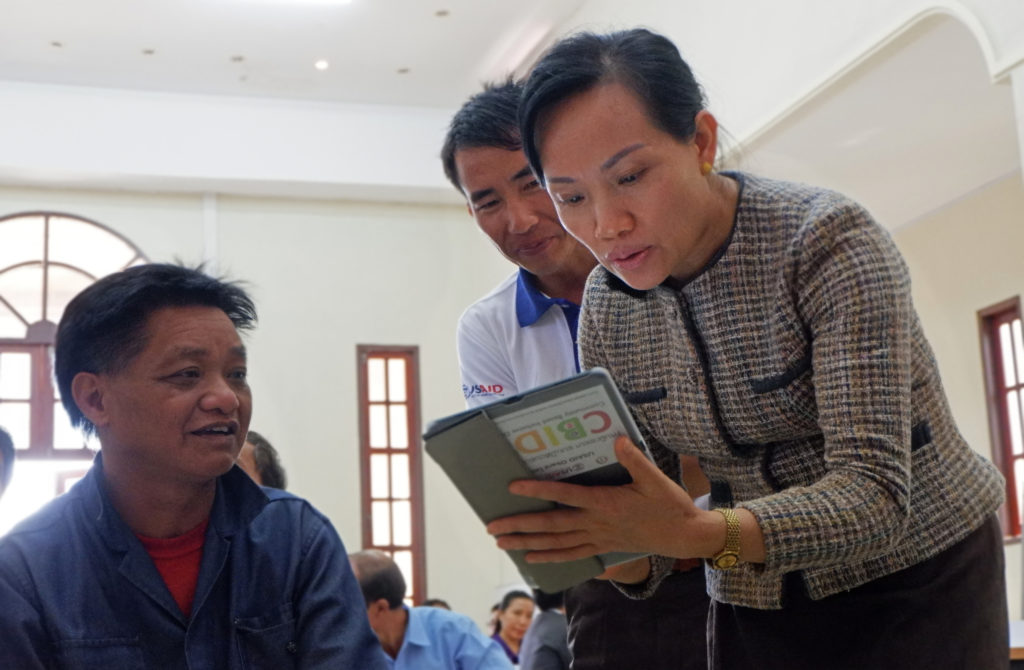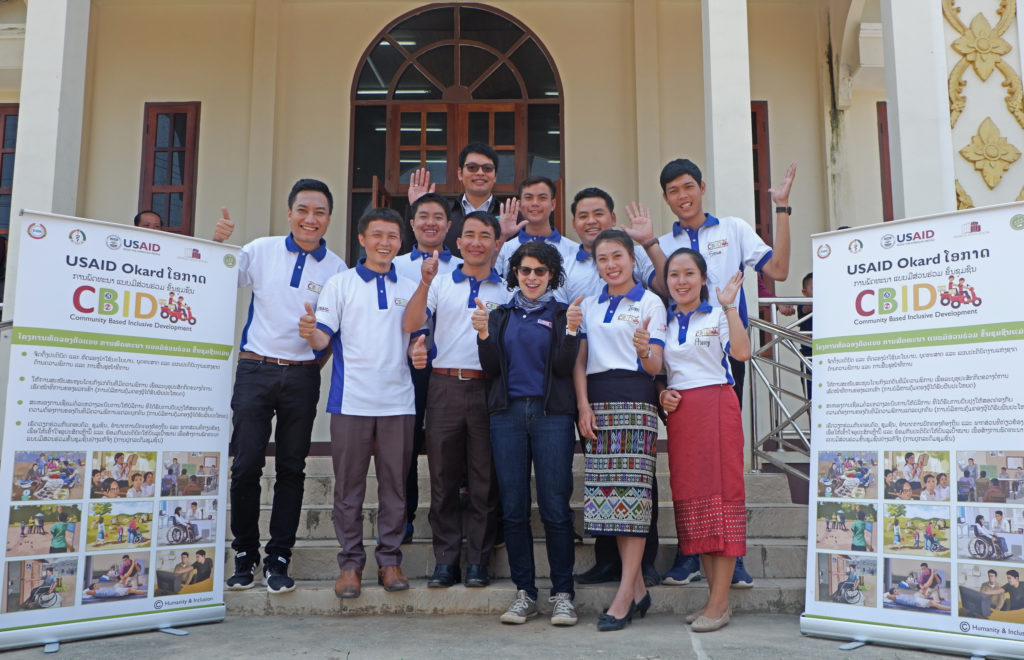
Deputy Minister of Labor and Social Welfare Mme. Baikham Katthiya conducts CBID screening with a community member in Kouymor village, Xieng Khouang province.
On September 24-25, 2019, U.S. Ambassador Rena Bitter together with the Deputy Minister of Labor and Social Welfare, Madame Baikham Katthiya, and representatives from the Ministry of Health, Ministry of Foreign Affairs, World Education Laos, and local authorities attended the USAID Okard project’s community awareness raising and screening activities in Kouymor village, Kham district, Xieng Khouang province. USAID Okard Community Based Inclusive Development (CBID) facilitators from the Quality of Life Association (QLA), a local non-profit association, led the activities.
USAID works with the Government of Laos, World Education, Humanity & Inclusion, and civil society organizations to promote disability inclusive policies so that no person is left behind. The USAID Okard project aims to improve access to quality health and rehabilitation services, increase job opportunities for persons with disabilities, and strengthen health and economic empowerment through stakeholder engagement. CBID is a demonstration model that connects the project’s large scale efforts to individuals and communities through case management and community mobilization in two districts of Xieng Khouang and Savannakhet provinces.
Ambassador Bitter first joined the community awareness raising and mobilization session, where CBID facilitators invited the entire village to learn about the different health conditions that can cause difficulty in functioning in order to find out whether any community members have one of these conditions. By answering questions and provoking discussion about disability, CBID facilitators also laid the groundwork for a shift towards more inclusive attitudes and behaviors.
After the group session, the Deputy Minister of Labor and Social Welfare Madame Baikham Katthiya tried her hand at conducting a screening interview to identify a community member’s difficulties in functioning. CBID facilitators use tablets to screen individuals who could benefit from case management while also providing data that the government of Laos can use to inform future health and inclusion efforts.

U.S. Ambassador Rena Bitter poses with CBID facilitators from the Quality of Life Association after joining the community awareness raising and screening in Kouymor village, Xieng Khouang province.
The Ambassador was impressed with the well-organized, compassionate work of the QLA team, and expressed her optimism about the future of a more inclusive Laos where persons with disabilities can reach their full potential. “I was impressed with the work of these CBID facilitators,” said Ambassador Bitter. “By helping persons with disabilities access and take advantage of economic and social opportunities, the Okard project demonstrates the American people’s support for Lao citizens in building a more inclusive, healthy, and prosperous Lao PDR.”
Deputy Minister Madame Baikham Katthiya shared, “I am so glad and honored to attend this activity in Kham District, where we are implementing the activities of the project right now. Particularly, we are supporting the persons with disabilities due to UXO, from birth, and from accidents. They will get the opportunity to access healthcare, rehabilitation, and income generation so they can support their families. Also, the project supports stakeholder engagement in our society.”
USAID Okard has completed community awareness raising and screening in 21 of the 35 target villages in Xieng Khouang to date, with approximately 1,750 people attending community awareness raising and approximately 500 people screened. Once these activities are completed in all villages, the project will move on to the next steps of CBID, including case management.
The visit illustrated the strong and continuing commitment of the United States government and Lao government to work together to support disability inclusive development in Lao PDR.
